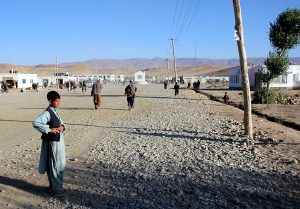A tour agency from Afghanistan has gone viral for producing darkly comic promotional videos that parody hostage situations. In one clip, armed men seem to be holding a foreigner captive, but then reveal it’s a prank. The “hostage” cheerfully shouts, “Welcome to Afghanistan!” before a montage shows them enjoying local culture, food, and landscapes.
A growing number of social media influencers are visiting Taliban-controlled Afghanistan and showcasing the country as a hidden travel gem. Their videos highlight scenic mountains, busy markets, and “authentic cultural experiences.”
The issue isn’t displaying Afghanistan’s beauty; the land, its rich history, and its people have much to share. The real issue is what these influencers ignore, which is the harsh reality of life under a regime that enforces gender apartheid, crushes dissent, and operates as an authoritarian state.
Every cheerful selfie and vlog about how misunderstood Afghanistan is risks sanitizing the image of a theocratic dictatorship. The Taliban are not a charming cultural curiosity; their regime has stopped girls from getting a secondary education, limited how women can engage in public life, enforced strict dress codes, and persecuted journalists and minorities.
In fact, the situation for women in Afghanistan is so grim that the International Criminal Court has issued arrest warrants for Taliban leaders for their persecution of women and girls.
When influencers film themselves walking freely in Kabul, they overlook the fact that millions of Afghan women cannot travel across their own country freely, let alone travel abroad.
“What we’re seeing instead is a curated, sanitized version of the country that conveniently erases the brutal realities faced by Afghan women under Taliban rule,” said renowned Afghan activist and scholar Orzala Nemat in an interview with NBC News.
The effects go beyond perception.
Tourism brings foreign currency into the country, and there is a huge risk of that money ending up in the hands of the regime, bolstering the Taliban’s power to suppress dissent and impose its oppressive laws. What might feel like an adventurous trip to an underexplored country can turn out to be an unintentional investment in the oppression of the Afghan people.
This ethical issue is not unique to Afghanistan. For years, guided tours to North Korea have been promoted as quirky, off-the-beaten-path experiences. But for the totalitarian Kim dictatorship, tourism is a source of foreign currency, which it uses to fund its nuclear program, surveillance state, and Orwellian regime.
In fact, North Korea has constructed a new resort town aimed at attracting foreign tourists, especially from Russia.
Visits to North Korea require guided tours, which create carefully curated itineraries, and travel is restricted to only a handful of areas permitted by the government. Visitors never see the prison camps, political purges, or forced starvation in rural areas, just like Afghanistan’s foreign guests will never witness the hidden violence of the Taliban’s rule.
While it would be wrong to accuse all people who visit Afghanistan of having sympathies toward the Taliban, their actions can have unintended negative consequences regardless of their intent. Foreign travelers become unwitting participants in a propaganda campaign that tries to sanitize the image of a country whose citizens are being brutally oppressed by a dictatorial regime.
Travel holds power. It can educate, create solidarity, and bring economic benefits to communities. But it can also gloss over oppression and send money to those who misuse power. The difference comes down to making well-informed and ethical choices. Visiting a country, especially when done merely to post about it online and derive revenue from the experience, requires more than just a desire to explore; it requires responsibility.
If we want to support the Afghan people, there are more ethical ways to do so such as donating to humanitarian efforts, supporting businesses run by Afghan refugees in our own communities, and urging governments to hold the Taliban accountable for human rights violations.
The situation for Afghans has become dire both inside and outside of Afghanistan. Many Afghan refugees were deported from Pakistan this year, even though they will likely face persecution and oppression in their home country. Afghans in Iran have also been expelled this year, according to the United Nations. The rise of anti-immigrant sentiment in the West also poses a threat to the safety of Afghans living abroad.
Our efforts should focus on ensuring the Afghan people can live in safety and have their rights respected. Traveling to Afghanistan under Taliban rule does the opposite; it diverts attention from the abuses they face, lends legitimacy to their oppressors, and channels money that may indirectly support the regime
Travel is a privilege, and with that privilege comes the duty to consider who gains from our presence. Sometimes, the most responsible journey is the one we decide not to embark on.

































